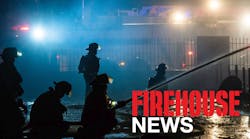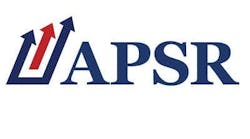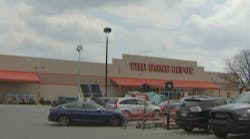Do you currently possess the skills that most employers seek when recruiting potential employees? The United States Fire Service has experienced a great deal of cultural change in the past decade or so and as a result, much more is required of its members. Where do you place in a skills assessment process? Are you operating with the same skill set that you did ten years ago? Have you been left behind in the advancement process at your department? Is a personal check of your interoperability skills needed? According to a recent survey conducted by the National Association of Colleges and Employers, the following list represents the top ten desirable employee skills (ranked in order of importance):
Communication Skills
In his book Company Officer, author Clinton Smoke declares that "those who can communicate effectively get more out of life". Mr. Smoke continues, "those who cannot communicate effectively will not reach their full potential". In essence, you cannot prosper in the workplace with a limited ability to communicate. Effective communication is absolutely essential in the emergency services. Each of us can most likely cite a personal experience (emergency or otherwise) where non-existent or ineffective communications severely hampered departmental operations.
Honesty/Integrity
According to the American Heritage College Dictionary, honesty implies truthfulness, fairness, and refusal to engage in fraud or deceitful activities. Harmony simply cannot exist in the fire service where the core qualities of honesty and integrity do not exist. As a co-worker or supervisor, your words and actions should always reflect in a manner that will build up - not tear down your fellow employees. Remember, in the fire service what goes around, comes around. You cannot change the past, but you can change the future. Interpersonal change is always possible, but only if the change is truly sought by the individual.
Strong Work Ethic
"Our new recruits are just plain lazy". A common refrain often heard among many fire circles these days? In this day of remote controls, fast food and instant information, what do you expect? I would imagine that none of us works as hard as our parents did. In the fire service, where the number fires are declining, and every other type of call imaginable is increasing, the definition of a good work ethic is being redefined as we adapt to our changing environment. What about the demands of obtaining and maintaining the numerous certifications required doing our job? Are the new employees indeed lazier, or smarter? I agree with the old adage "work smarter - not harder". Work ethic (or a lack thereof) is usually instilled long before recruits apply for and ultimately enter the fire service. The bottom line - be prepared to do your part and then some - you will stand out.
Teamwork Skills
The ability to function as a team member is critical to the success of every fire department. Emergency and non-emergency situations alike require an employee with the attitude and ability to effectively function as a contributing member of a group. Drawing upon your own experience, what problems arise when a person chooses not to be a part of the team? The fire service cannot prosper without a committed team effort at the company level. Do not be the outsider, become a part of the team, you and the department will be better for it.
Analytical Skills
"We can't do anything here". I'm betting that you rarely, if ever, hear this statement uttered at the incident scene. A natural attribute instilled among most firefighters, they simply refuse to stand by and do nothing! On-the-fly innovation, enabled by knowledge gained from higher education, technical training, and plain old common sense will usually get the job done. Analytical skills are an absolute necessity in the modern workplace; the fire service epitomizes this statement. By constant attention and grooming of the aforementioned traits, our members will continue too innovate and rise to the task at hand.
Motivation/Initiative
In his book Fire Service Personnel Management, author Steven Edwards describes motivation as "an individual's needs, desires, and concepts that cause him or her to act in a particular manner". Motivation is certainly warranted at an emergency, how is motivation fostered back at the station? In regard to fire department motivation, Mr. Edwards further comments "fire departments in general have a limited range of performance incentives available to them ". In essence, the fire service is limited in regard the reward of tangible benefits. While departmental incentives should be encouraged, it is primarily up to the individual to develop and maintain an attitude conducive to doing their job. As most supervisors understand, it is nearly impossible to make an unhappy person happy. The road of advancement will always be long for those that do not possess a good attitude toward the job and others.
Flexibility/Adaptability
Personal flexibility is a must for those who are employed in the fire service. Hours of the day literally hang in the balance. The ability to adapt to the myriad of scenarios presented in the routine workday of the fire service certainly takes an adaptable person. Is this a skill that can be taught? Probably not, however, maturity may factor in the equation to some degree. The modern workplace demands flexibility to overcome unforeseen obstacles and deadlines that surface in every profession. You must be flexible and adaptable to the needs of the department as well as your own needs.
Computer Skills
"I hate these #%!* things!" These choice words are often associated with computer usage in the fire service. In reality, computers have streamlined fire department operations and paved the way for innovations once unimaginable. Computer usage is usually not an obstacle to the younger generation. On the flipside, older users often struggle while navigating the endless array of possible screw-ups. The fire service has been perpetually entrenched in paper and pencil reporting, there is an easier and more efficient method - the computer. Nearly a decade ago, Nancy Grant and David Hoover, authors of Fire Service Administration, makes the following point regarding computers in the fire service: "The opportunities for effective integration of computers into the fire service are excellent if the users play an active role in the development of these systems." Computers are here to stay; we must simply adapt and overcome. What computer skills do you bring to the table? Don't like them you say? Get over it, learn the basics, and see how they can help you as well as your department.
Detail Oriented
The fire service once "painted in broad strokes". Older firefighters remember the "good old days" when structure fires were plentiful and other types of "nuisance" runs were far and few between. Times have changed, as a profession; we have been forced to change as well. As emergency responders, we have been forced specialize; in essence, the devil is fact often in the details. It is often the details that dictate the efficient and safe outcome of the incident. We no longer have the luxury of avoiding important details and open ourselves to tremendous liabilities when we do. Fire departments that embrace these details often stand out among those that do not. Regardless of the profession, employees must strive to be detail oriented and follow through on all aspects of the job, both emergency and non-emergency.
Leadership Skills
Roget's Thesaurus simply describes leadership as an act or instance of guiding. We are either the guide or the one being guided. There are basically two kinds of leaders in the fire service, negative leaders and positive leaders, which one are you? The fire service cannot effectively operate with self-motivated and dedicated leaders. Can and will you take the ball and run with it if called upon to do so?
How Do You Rate?
How do you fare in the top ten? How does your present employer or how would a prospective employer rate you regarding the top ten wanted skills? The following self test will take less than five minutes and it may help you determine your strong and weak points. Once identified, seek to eliminate those lower scores by making a diligent effort to improve a little in each area. You can begin by setting written, obtainable goals, and then working toward improvement. Retake the self test in a couple of months, chances are, you will score much higher on the top ten. Please follow the simple directions below
Top 10 Skills Self-Assessment
Truthfully rate yourself: Circle (lowest 1 2 3 4 5 highest) where you rate yourself on each of the ten skills and total the score. Better yet, have your co-workers rate you.
|
Communication skills:
|
1 2 3 4 5 |
|
Honesty/integrity:
|
1 2 3 4 5 |
|
Strong work ethic:
|
1 2 3 4 5 |
|
Teamwork skills:
|
1 2 3 4 5 |
|
Analytical skills:
|
1 2 3 4 5 |
|
Motivation/Initiative:
|
1 2 3 4 5 |
|
Flexibility/Adaptability:
|
1 2 3 4 5 |
|
Computer Skills:
|
1 2 3 4 5 |
|
Detail oriented:
|
1 2 3 4 5 |
|
Leadership skills:
|
1 2 3 4 5 |
|
Total:
|
___________ |
Scoring:
46-50 - Great! You possess many qualities that are desired by employers. 40-45 - A good employee. You can easily improve your score. 35-39 - Average, you pretty much rate with the rest of the gang. Are you happy with that? 35 - Below - Definitely not in line for promotion, a personal life change is definitely in order.
Dave Murphy retired as Assistant Chief of the Richmond (KY) fire department. He currently serves as an Assistant Professor in the Fire and Safety Engineering Technology program at The University of North Carolina at Charlotte. He also serves as a volunteer firefighter with the Harrisburg (NC) Fire Department.





